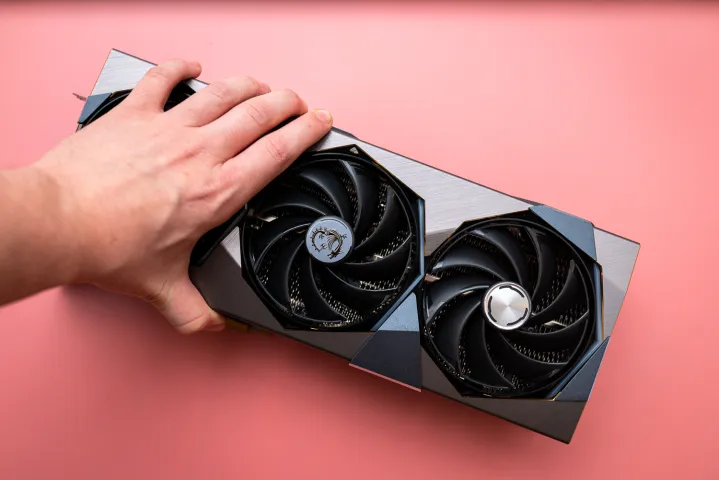Modders have released two new tools that could change GPU overclocking significantly. OMGVflash and NVflashk have effectively cracked a security feature on recent Nvidia GPUs, allowing extreme overclockers to flash new vBIOS files to graphics cards.
About a decade ago, Nvidia locked down its GPUs. Graphics cards are governed by a vBIOS, which specifies such things as the power limit of the GPU, maximum clock speed, and parameters like when the GPU will shut down due to thermals. Prior to Nvidia’s GeForce 900-series GPUs, extreme overclockers could flash a new vBIOS onto the GPU to achieve higher levels of performance. But Nvidia locked this functionality with an on-chip security processor.
The ability is returning with the new tools. Both were developed by members of the TechPowerUp forums independently, and the outlet says it has “hand-inspected the binary code” to ensure they’re free of viruses.
Outside of tinkering, the tools can boost performance on cheaper graphics cards. Many brands sell a model close to list price and an overclocked model for slightly more. The only difference between the cards, in most cases, is the vBIOS file. The tools allow for cross-flashing as well, allowing you to flash a vBIOS from one vendor onto the card of a different vendor.
That doesn’t mean you should flash a new vBIOS on your GPU, though, especially if you recently picked up one of the best graphics cards on the market. Doing so will void your warranty, and it can ruin your GPU. It’s important to remember that flashing a new vBIOS means you’re running the graphics card outside of its recommended parameters, so you could ruin it without proper cooling. On RTX 20-series GPUs and newer, the vBIOS also specifies the power limits of your GPU, meaning you could burn it up in 16-pin RTX 4090 style.
OMGVflash works with RTX 20-series GPUs and older for cross-flashing, while you can only cross-flash with the same power headers for RTX 30-series and RTX 40-series. NVflashk is a little more free. It will attempt to flash any BIOS file — the author gives the example of flashing an RTX 3060 vBIOS to an RTX 4090 — and although it may not work, the tool will still try. The author originally created the tool to flash a 1,000-watt vBIOS on an RTX 4090, which he did successfully.
As with any extreme modding, proceed at your own risk with these tools. They aren’t meant for most people, so if you want to tinker, we recommend checking out our list of the best GPU overclocking software to get your feet wet rather than using one of these tools.

